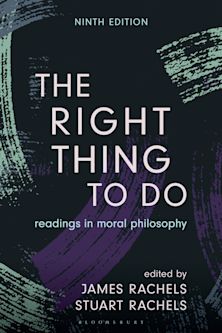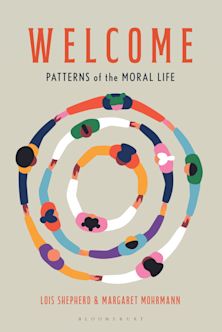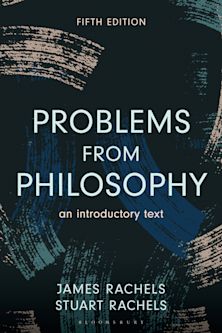- Home
- ACADEMIC
- Philosophy
- Ethics and Moral Philosophy
- Morality, Rules, and Consequences
Morality, Rules, and Consequences
A Critical Reader
Brad Hooker (Author) , Elinor Mason (Author) , Dale E. Miller (Author) , D W. Haslett (Contributor) , Brad Hooker (Contributor) , Shelly Kagan (Contributor) , Sanford S. Levy (Contributor) , David Lyons (Contributor) , Phillip Montague (Contributor) , Tim Mulgan (Contributor) , Philip Pettit (Contributor) , Madison Powers (Contributor) , Jonathan Riley (Contributor) , William H. Shaw (Contributor) , Michael Smith (Contributor) , Alan Thomas (Contributor)
- Textbook
Morality, Rules, and Consequences
A Critical Reader
Brad Hooker (Author) , Elinor Mason (Author) , Dale E. Miller (Author) , D W. Haslett (Contributor) , Brad Hooker (Contributor) , Shelly Kagan (Contributor) , Sanford S. Levy (Contributor) , David Lyons (Contributor) , Phillip Montague (Contributor) , Tim Mulgan (Contributor) , Philip Pettit (Contributor) , Madison Powers (Contributor) , Jonathan Riley (Contributor) , William H. Shaw (Contributor) , Michael Smith (Contributor) , Alan Thomas (Contributor)
- Textbook
This product is usually dispatched within 3 days
- Delivery and returns info
-
Free US delivery on orders $35 or over
Exam copy added to basket
Choose your preferred format. Please note ebook exam copies are fulfilled by VitalSource™.
You must sign in to add this item to your wishlist. Please sign in or create an account
Description
What determines whether an action is right or wrong? One appealing idea is that a moral code ought to contain a number of rules that tell people how to behave and that are simple and few enough to be easily learned. Another appealing idea is that the consequences of actions matter, often more than anything else. Rule consequentialism tries to weave these two ideas into a general theory of morality. This theory holds that morally wrong actions are the ones forbidden by rules whose acceptance would maximize the overall good.
Morality, Rules, and Consequences: A Critical Reader explores for students and researchers the relationship between consequentialist theory and moral rules. Most of the chapters focus on rule consequentialism or on the distinction between act and rule versions of consequentialism. Contributors, among them the leading philosophers in the discipline, suggest ways of assessing whether rule consequentialism could be a satisfactory moral theory. These essays, all of which are previously unpublished, provide students in moral philosophy with essential material and ask key questions on just what the criteria for an adequate moral theory might be.
Table of Contents
Chapter 2 Between Act and Rule: The Consequentialism of G. E. Moore
Chapter 3 The Educational Equivalence of Act and Rule Utilitarianism
Chapter 4 Defending Rule Utilitarianism
Chapter 5 Values, Obligations, and Saving Lives
Chapter 6 The Moral Opacity of Utilitarianism
Chapter 7 Global Consequentialism
Chapter 8 Evaluative Focal Points
Chapter 9 Hooker's Use and Abuse of Reflective Equilibrium
Chapter 10 Consequentialism and the Subversion of Pluralism
Chapter 11 Why Rule Consequentialism is not Superior to Ross-style Pluralism
Chapter 12 Ruling Out Rule Consequentialism
Chapter 13 Reflective Equilibrium and Rule Consequentialism
Chapter 14 Rule Consequentialism and the Value of Friendship
Product details
| Published | Jul 19 2000 |
|---|---|
| Format | Paperback |
| Edition | 1st |
| Extent | 272 |
| ISBN | 9780742509702 |
| Imprint | Rowman & Littlefield Publishers |
| Dimensions | 9 x 6 inches |
| Publisher | Bloomsbury Publishing |
About the contributors
Reviews
-
These essays provide the best available survey of rule consequentialism; they are original and of a very high standard. This book will be a major resource for moral philosophers and scholars of consequentialist ethics for some time to come.
Paul Kelly, London School of Economics



































